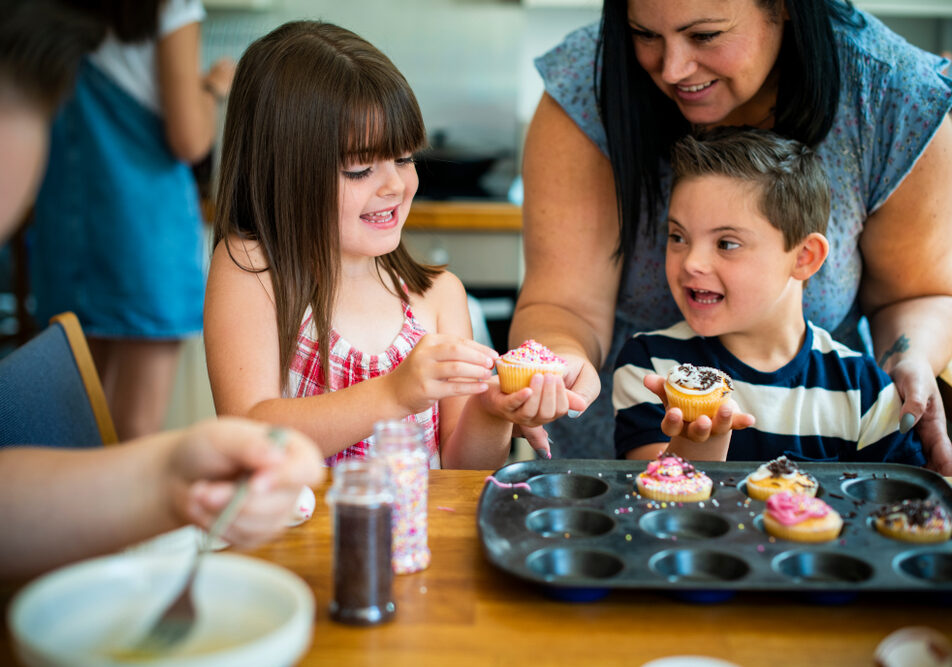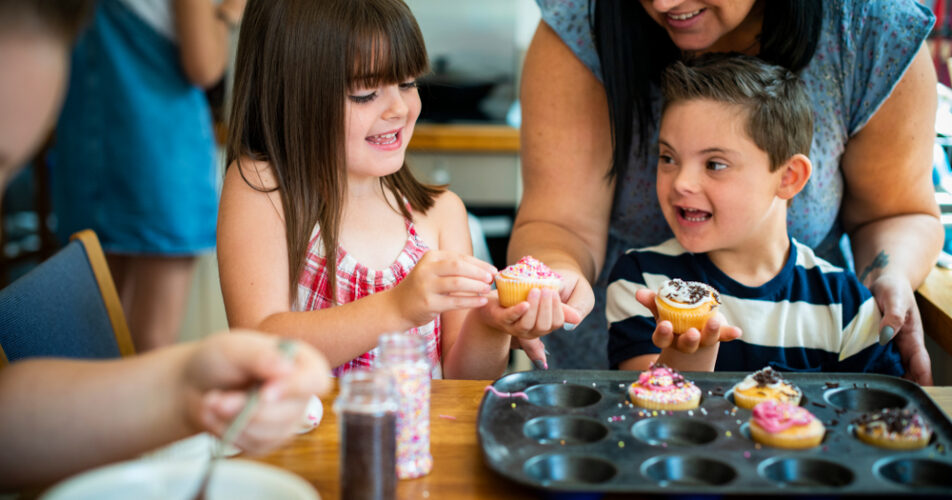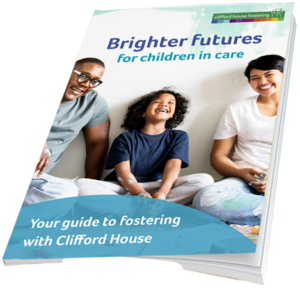

About Fostering
There are many emotional, social and economic benefits to becoming a foster parent. Ultimately, fostering makes a positive impact on children and young people’s lives. Even if you only have a child for a short period of time, you have the ability to nurture the child, teach lifelong lessons and set positive examples for their future.
Enquire Now
What is Fostering?
Foster care offers children a safe and caring family when a child’s biological parents cannot take care of them, there are many emotional, social and economic benefits to becoming a Foster Carer.
Fostering is a way of providing a safe and stable home and family life for children and young people who are unable to live with their birth family, ideally for as long as they need it. Children and young people may not be able to live with their own parents or extended family for a variety of reasons. These could include family breakdown, parents/carers suffering health problems or situations where a child or young person is at risk of significant harm.
The provision of a safe, secure and accepting family environment can offer a child or young person a safe haven, afford protection, offer acceptance and assist them to restore hope, confidence and self-belief. So often about beginning to understand the past, feel comfortable in the present and begin to believe in the future the contribution of a foster home is immense.
Every child and young person is unique and their experience of family can be very diverse. Likewise there is no typical or ‘blueprint’ foster family, some children and young people might prefer a single foster parent, others a two carer family, some like big families, living with other children, others are not so comfortable. One of the greatest strengths of foster care is the diversity of family type, regardless of your experience, skills and circumstances you may be able to make a real difference to the life of a child.
Meet our foster parent Phil
What can I say, foster caring is life-changing. It’s the most rewarding thing you can do. To know that you are going to impact somebody’s life for the better is one of the greatest gifts any job can give you.
Learn more
Fostering Requirements
There is no blue print to becoming a foster parent. It isn’t about status or lifestyle, foster parents come from a variety of backgrounds. The most important factor is that you are willing and able to offer a child stability and support.
There are a few key factors and requirements that firstly need to be met to be able to foster:
- Be over the age of 21
- Have a spare bedroom
- Be a British citizen or have the legal right to live and work in the UK.
- Be patient, committed, understanding and resilient
Who Can Become a Foster Parent?
Foster parents come from a variety of backgrounds with a range of different life experiences, skills and qualities to help meet the needs of children and young people in foster care. You don’t need to have any specific qualifications or have had your own children.
You can be:
- Single, married or divorced
- Any gender
- A parent with young children, with grown up children or no children
- A single parent
- In a same-sex relationship
- Employed or unemployed
As a foster parent, your main responsibilities are:
- Looking after and caring for the child as part of a team
- Working with professionals such as social workers, schools and health professionals
- Supporting the relationship with child’s birth family, through contact.
- Keeping records and write reports about the foster children in your care
- Attend meetings and training
- Be able to advocate for the child
- Help the child manage their behaviour and feelings
Choosing a fostering agency
Fostering with an independent fostering agency
Choosing to become a foster parent with Clifford House Fostering means you will have excellent training opportunities, support for the whole family, and a fostering team based in Bromsgrove who will ensure advice and support is available 24/7.
If you’re thinking about fostering, why not download our complete beginner’s guide to fostering a child? Jam pack with helpful information about fostering and the steps to fostering.
Download Guide to Fostering

Fostering FAQs
-
Why Foster?
The many benefits of becoming a Foster Parent include:
- Making a difference to a child’s life
- Experiencing a sense of achievement from helping others
- Enjoying having children in your life
- Gaining satisfaction from helping a child learn and develop
- Having an opportunity to use your parenting or life skills
- Helping your own family learn to share and care for others
- Taking on a fresh challenge, whatever your age
-
What Allowances do Foster Parents Receive?
Whilst fostering is extremely rewarding, it does have its emotional and financial costs. At Clifford House Fostering, we believe that carers should be rewarded well for the work that they do. That’s why we offer a competitive and generous fostering allowance and payment structure to our foster parents.
The exact amount depends on the child’s age and needs. This is split into two elements – the child allowance to cover what it costs to look after the child and the carers allowance, our recognition of the hard work that our carers do.
Other benefits include:
- Generous financial allowances and benefits
- 24 hour support from experienced practioners
- Individual support packages
- Comprehensive training programme with training venues across the region
- 14 day paid respite (accrued whilst children are placed)
- Membership for FosterTalk
- Refer-a-Friend incentive scheme – Once you are an approved carer if you recommend a friend or family member to us and they become an approved carer you will receive a financial reward
A foster parent’s status is self-employed, which attracts tax relief. Click here for more information from HMRC on becoming a self employed foster carer. Below is also a link which shows a video from the HMRC for foster parents re tax.
-
Types of Placement
Here at Clifford House, we are working alongside a host of placing local authorities to provide a range of mainstream fostering homes. This is the most common type of fostering. Our valued foster carers provide care for children all of ages from 0-18 years old. These arrangements might include siblings, teenagers or young children. Some last for a few days and others a few months, it all depends on the needs of the child.
Our dedicated team will support you and your family through the initial training and assessment to decide the type of fostering where you feel you can make the biggest difference.
Short-term
The majority of children and young people, when they first need foster care, are under short term arrangements. They can vary in length from a week to a couple of years. These arrangements are invaluable as they provide the child with the secure and caring environment they need, whilst professionals, families and the child have an opportunity to work together to decide on their future.
The hope will always be to achieve permanence for any child whether that is living back with their birth family, extended family members, through adoption or long term fostering.
Emergency
Emergency fostering is responding to the immediate need for a child or young person at short notice whether that is in the day time, evenings or weekends. Availability and flexibility are essential in what can be a very rewarding area of fostering.
Long-term
Long-term foster care is one of the most beneficial types of fostering. This can achieve the stability and security for a child’s entire childhood. For children and young people it creates a sense of belonging and reflects a commitment on both the part of the foster family and child. Unlike adoption, the children remain the legal responsibility of the local authority, and fostering allowances continue to support the wonderful care of the foster parent.
Parent and Child Arrangements
Fostering provides many creative ways of keeping families together and offering a chance to sustain relationships. One example is the parent and child arrangements we offer at Clifford House Fostering. We offer specialist training, support and guidance to our foster parents who want to offer a chance by providing a home for both the child and one, or both, of its parents. Usually this will mean fostering teenage mothers with babies.
These may be pre-birth placements, to help the mother prepare for the arrival of her baby. Or they may be a parent who needs some help to learn basic care skills, and how to provide a safe, nurturing environment for their child.
Respite Care
Short break or respite fostering is such an important support to foster carers, foster children and their families, giving them a well-deserved break and chance to re-energize. All our foster parents receive 14 days respite leave a year should this be needed.
Specialist Placements
As your fostering career progresses, skills and experience build, you may be interested in providing more specialist areas of care to children and young people with complex needs. At Clifford House Fostering we provide specialist training and support in developing fostering households with the capacity and skills to offer a range of very special homes.
-
What Are The Next Steps?
To start your foster care journey, click here and fill out the brief enquiry form and a member of our team will get back to you shortly.
Discover how fostering will affect your finances
Finances should never be the barrier to fostering. Like any caring profession, it’s important to know you’ll be able to make a difference without having to worry about whether you can afford it.
Download our fostering finance guide for everything you need to know about foster care pay, tax, benefits and more!
Speak to Our Team
Whether you’re ready to start your journey or just want to chat to an expert, we are here to talk.
"*" indicates required fields
The company takes the requirements of GDPR seriously in ensuring the privacy and lawful processing of personal data provided to us by you. Please view our privacy notice which explains how the company will manage and use your personal data. This site is protected by reCAPTCHA and the Google Privacy Policy and Terms of Service apply.

